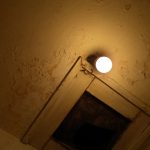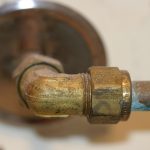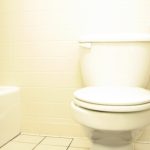Natural gas provides a clean, efficient and cost effective fuel for many domestic appliances. Vital systems such as heating and water heaters are usually the most common consumers of natural gas. Unfortunately, while gas is an efficient fuel, there is also the risk of leaks, which can be devastating for a home. Fortunately, here is some consumer safety information so you know what you need to do if you suspect you might have
a gas leak.
The Causes of Gas Pipe Leaks:
Generally, gas pipes are very reliable, and they are specially designed to carry gas into homes around the county. Unfortunately, leaks are a common issue that can begin to develop and put your home at risk. Leaks are usually due to poor installation or a malfunction. This includes:
Rust; If your gas pipes are near to even a small water leak, dripping water can eventually cause rust and corrosion that compromises the gas line.
Worn Fittings; Gas pipes are usually fitted together like standard water and plumbing pipes. This means that while there is a tight seal initially, over time, the fittings can deteriorate and allow some gas to escape.
Poor Seals; When a gas line is tied into an appliance such as a water heater, stove or heater it requires a seal. This is to ensure that even minute amounts of gas are prevented from leaking. When the seal is old, it can become brittle and crack, which allows the gas to leak out.
Signs of a Gas Leak:
Due to the potential danger of a gas leak, homeowners need to be vigilant for the signs of a gas leak. Fortunately, it can be quite easy to spot even a small leak as there are some telltale indications.
The most obvious sign of a leak is the smell. Gas companies add an odorant to their supplies. Natural gas doesn’t actually have a smell, and the distinct rotten egg odor is deliberately added to allow you to detect its presence. Even a small amount of gas should be fairly easy to detect as you notice that distinct and unpleasant smell.
There are also other signs that you may have a gas leak. You may hear a whistling or hissing noise near your appliances or the gas lines in your home. This could be a sign that a seal or fitting has become worn and is allowing gas to escape. You may also see indications that pressurized air is leaking. This may be apparent in patterns of dirt or dust being blown or loose objects such as paper or leaves are being disturbed. You may also find that certain plants appear to be dying as they are placed near the source of a leak.
Vital Action if You Suspect a Leak:
If you think that you may have a leak, it is important that you are on the side of caution and have it checked. The most important thing is not to panic. Be sure not to light any cigarettes, candles, and matches, and avoid switching on any electrical appliances. If sufficient gas has collected inside your home, even a small spark from an electrical item can cause it to ignite. So, don’t even switch on any lights.
It is a good idea to evacuate your home quickly and place a
call to your gas company. There is usually an emergency number that is available 24/7.
By Giovanni Longo President Flood Brothers Plumbing
Giovanni Longo is a 3rd generation master plumber who has been practicing his craft and trade in the greater Los Angeles area for well over a decade and a half. A plumbing and hydraulics-engineering innovator, Giovanni’s particular world-class expertise focuses on dealing with challenging sewer system designs as well as resolving complex commercial and residential draining issues. As a certified Flood Mitigation expert, he is also well versed in a wide variety of water damage and remediation solutions.





